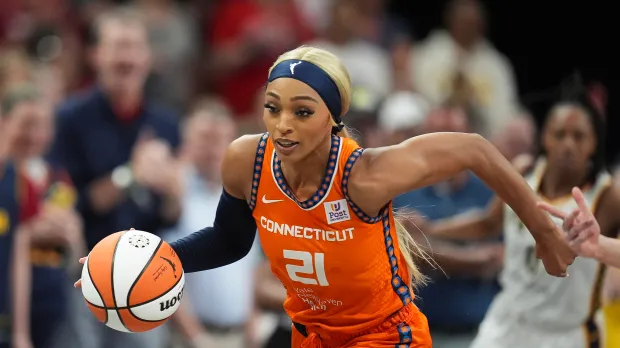
Fivio Foreign: Keeping Pop Smoke’s Memory Alive
Brooklyn rapper Fivio Foreign has collaborated with major artists like Kanye West, Nicki Minaj, and Drake, bringing the drill genre into the spotlight. He speaks with Annabel Nugent about honoring Pop Smoke’s legacy, engaging with Mayor Eric Adams on gang violence, and adapting his lyrics for Beyoncé.
Sunday, May 8, 2022
Fivio Foreign isn’t in a talkative mood today. It’s morning in New York City, where he was up late working in the studio. With his debut album released just a week ago, relaxation isn’t on his mind. Collaborations with stars like Nicki Minaj, Drake, Alicia Keys, and Kanye West require continuous effort. “I’m in the studio every day,” he says over Zoom, his camera off and his voice still heavy with sleep.
“Crazy” is how Fivio describes the release of his album BIBLE, produced by Kanye West. The album presents a gentler take on drill, featuring catchy hooks and R&B elements that broaden its appeal beyond the genre’s core fans. This could be the breakthrough drill needs for mainstream acceptance. The 32-year-old, whose real name is Maxie Lee Ryles III, finds it surreal that West sought him out. “I didn’t believe it at first, but with my career taking off, anything is possible.” BIBLE marks another step in Fivio’s rapid ascent in hip-hop. He gained traction with his 2019 ad-lib “Big Drip” and gained further recognition with a viral remix of “Body” by UK rappers Russ Millions and Tion Wayne. His collaborations with Nas, Drake, and French Montana solidified his presence, including appearances on West’s DONDA and Nicki Minaj’s “We Go Up.”
As a leading figure in Brooklyn drill—a style rooted in Chicago’s rap scene—Fivio’s music intertwines with its violent history. Drill combines aggressive beats and unsettling basslines, mirroring the harshness of its lyrics.
Drill, a term associated with the slang for “kill,” reached New York through British producers who shared their beats on YouTube, paving the way for emerging artists like Fivio. Recently, Brooklyn drill was closely linked to Pop Smoke, whose hits “Dior” and “Christopher Walking” marked him as a rising star until his tragic death in February 2020. Despite being a decade older, Fivio and Pop Smoke were friends, with Pop advocating for Fivio’s signing by his label. After Pop’s passing, Fivio emerged as a leading successor. In the album’s lead single, he declares his ascension: “Welcome to the city of gods/ Pop was the king of New York/ Now I’m the one in charge.” Fivio views this album as a tribute to his friend. “I want to continue his legacy. That’s my brother, and I have to keep his name alive,” he shares, noting how much he learned from him, even if he never asked directly.
Both Fivio and Pop were on the same side of the ongoing Brooklyn gang conflict. Their early music was closely tied to these violent roots. Drill lyrics, characterized by direct threats and hyperlocal references, have been linked to real-world violence. Authorities in cities like Chicago, London, and New York have pointed to drill’s popularity as a factor in rising crime rates. Fivio aims to break that association, asserting that music shouldn’t be reduced to violence alone. “Think about it. Violence comes first, not the music. Just like heartbreak precedes music about heartbreak,” he explains. Artists draw inspirat
ion from their




